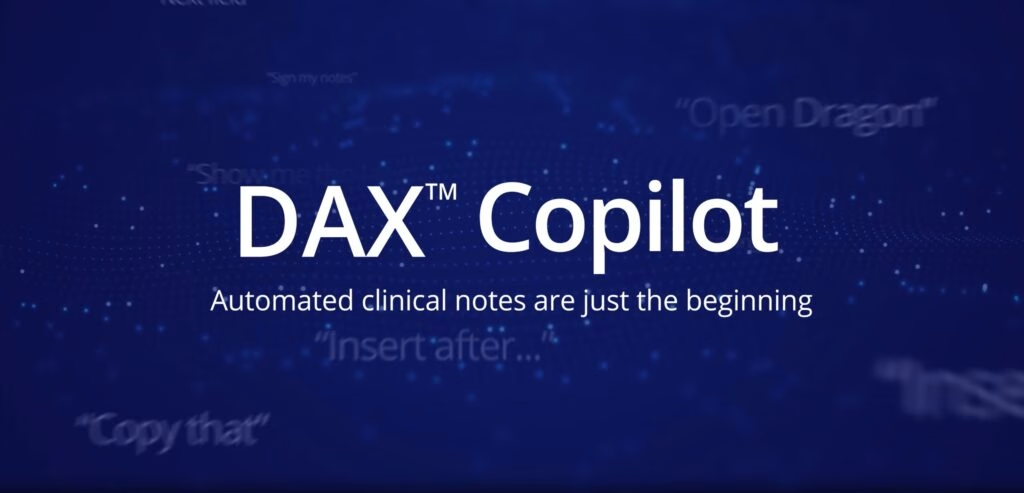In the rapidly evolving world of technology and gadgets, the healthcare sector is witnessing a transformative shift with the integration of DAX AI. This cutting-edge technology is not just a buzzword; it represents a significant leap forward in how medical professionals interact with data and deliver care. In this article, we delve into the intricacies of Nuance DAX, explore the role of DAX Copilot, and discuss the associated costs and benefits.
Understanding DAX AI: A New Era in Healthcare
DAX AI, or Dragon Ambient eXperience AI, is a revolutionary tool designed to streamline the documentation process in healthcare settings. By leveraging advanced artificial intelligence, DAX AI listens to patient-physician interactions and automatically generates clinical notes. This innovation not only saves time but also enhances the accuracy of medical records.
The Role of Nuance DAX
Nuance DAX is at the forefront of this technological advancement. Developed by Nuance Communications, a leader in AI-driven solutions, Nuance DAX integrates seamlessly into existing healthcare systems. It captures conversations in real-time, allowing physicians to focus more on patient care rather than administrative tasks.
– Real-time Documentation: One of the standout features of Nuance DAX is its ability to document patient visits in real-time. This reduces the burden on healthcare providers, who traditionally spend a significant portion of their time on paperwork.
– Improved Patient Experience: By minimizing the time spent on documentation, physicians can engage more meaningfully with their patients, leading to improved patient satisfaction and outcomes.
DAX Copilot: Enhancing Efficiency and Accuracy
The introduction of DAX Copilot further enhances the capabilities of DAX AI. Acting as a virtual assistant, DAX Copilot aids healthcare professionals by providing real-time suggestions and insights during patient interactions.
Key Features of DAX Copilot
– Contextual Assistance: DAX Copilot offers contextual assistance by analyzing ongoing conversations and suggesting relevant information or actions. This ensures that healthcare providers have access to the most pertinent data at their fingertips.
– Error Reduction: By cross-referencing patient data and previous records, DAX Copilot helps reduce errors in documentation, leading to more accurate and reliable medical records.
The Impact on Healthcare Providers
The integration of DAX Copilot into healthcare practices has profound implications. It not only enhances the efficiency of medical professionals but also contributes to a more streamlined workflow. This, in turn, allows for better resource allocation and improved patient care.
Evaluating the DAX Copilot Cost: Is It Worth the Investment?
While the benefits of DAX AI and DAX Copilot are clear, understanding the DAX Copilot cost is crucial for healthcare institutions considering this technology. The cost can vary based on several factors, including the size of the practice, the number of users, and the specific features required.
Factors Influencing DAX Copilot Cost
1. Scale of Implementation: Larger healthcare facilities may incur higher costs due to the need for more extensive integration and support.
2. Customization Needs: Practices requiring tailored solutions may face additional expenses for customization and training.
3. Subscription Models: Many providers offer flexible subscription models, allowing institutions to choose plans that best fit their budget and needs.
Weighing the Costs Against the Benefits
Investing in DAX AI and DAX Copilot can lead to significant long-term savings. By reducing the time spent on documentation and minimizing errors, healthcare providers can allocate resources more efficiently. Additionally, the improved patient experience can lead to higher retention rates and better overall outcomes.
Real-World Applications and Success Stories
The adoption of DAX AI and DAX Copilot is not just theoretical; numerous healthcare institutions have already reaped the benefits of this technology. Let’s explore some real-world applications and success stories.
Case Study: A Busy Urban Hospital
In a bustling urban hospital, the implementation of Nuance DAX led to a 30% reduction in documentation time. Physicians reported feeling less overwhelmed, and patient satisfaction scores improved significantly. The hospital also noted a decrease in documentation errors, leading to more accurate patient records.
A Small Family Practice
For a small family practice, DAX Copilot proved invaluable. The practice saw a marked improvement in workflow efficiency, allowing physicians to see more patients without compromising on care quality. The cost of implementation was quickly offset by the increased patient throughput and satisfaction.
Challenges and Considerations
While the benefits of DAX AI are substantial, there are challenges and considerations that healthcare providers must address.
Data Privacy and Security
One of the primary concerns with AI-driven solutions is data privacy and security. Ensuring that patient data is protected and compliant with regulations such as HIPAA is paramount. Providers must work closely with technology vendors to implement robust security measures.
Training and Adaptation
The transition to using DAX AI requires training and adaptation. Healthcare professionals must be adequately trained to use the technology effectively. This may involve an initial learning curve, but the long-term benefits often outweigh the initial challenges.
The Future of DAX AI in Healthcare
As technology continues to advance, the potential applications of DAX AI in healthcare are vast. From improving diagnostic accuracy to enhancing patient engagement, the future looks promising.
Expanding Capabilities
Future iterations of DAX AI may include more advanced features, such as predictive analytics and integration with other healthcare technologies. This could further enhance the ability of healthcare providers to deliver personalized and efficient care.
Broader Adoption
As more healthcare institutions recognize the value of DAX AI, broader adoption is likely. This could lead to a more standardized approach to documentation and patient interaction across the industry.
Conclusion: Embracing the Future with DAX AI
In conclusion, DAX AI and its components, Nuance DAX and DAX Copilot, represent a significant advancement in healthcare technology. By streamlining documentation, enhancing accuracy, and improving patient interactions, these tools offer substantial benefits to healthcare providers and patients alike. While the DAX Copilot cost is a consideration, the long-term advantages make it a worthwhile investment for many institutions. As we look to the future, embracing these innovations will be key to delivering high-quality, efficient healthcare in an increasingly digital world.


